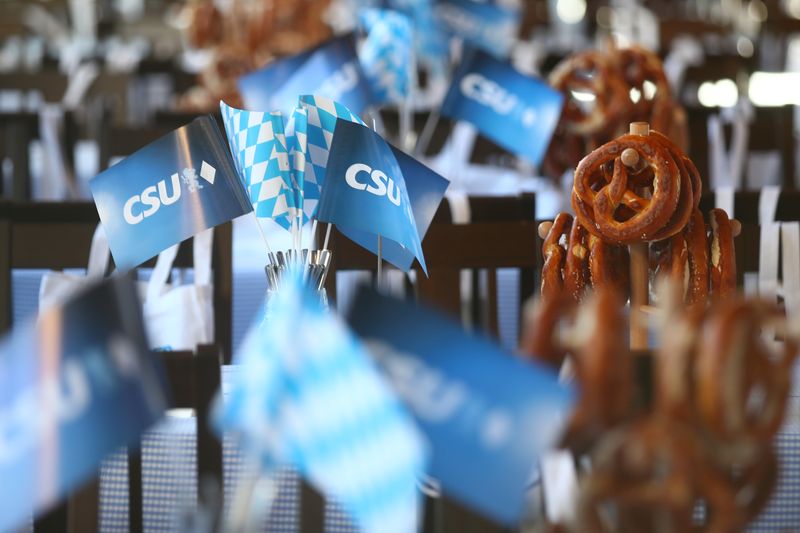By Thomas Escritt
BERLIN (Reuters) - Germany's parliamentary election on Feb. 23 will be the first under new rules designed to cut the size of a parliament that had grown too unwieldy, but they also make vote outcomes harder to forecast.
WHAT IS GERMANY'S HYBRID VOTING SYSTEM?
The new system still aims to blend British- or American-style single-member constituencies with the proportionality characteristic of most continental European countries.
Under the old system, proportionality was ensured by topping up parliament with extra seats after winners were found in each of 299 constituencies. This ensured parties held seats in line with their share of the vote, regardless of the distribution of constituency seats.
In 2021, that led to a parliament of 735 seats, one of the largest legislatures in the world.
The new law fixes parliament at 630 seats - between Britain's lower House of Commons and Turkey's National Assembly in world rankings - and prioritises proportionality over individual member seats.
Now, if a party wins a share of seats that is greater in proportion to their share of the national vote, some constituencies will be left vacant, starting with those where the winning candidates have the narrowest margin of victory.
The change may hurt parties that are traditionally strong in single-member constituencies - in particular the Christian Social Union (CSU), the Bavarian sister party of the Christian Democrats (CDU) whose leader Friedrich Merz is tipped to become the next chancellor after the February snap election.
HOW DOES THE 5% THRESHOLD WORK?
Under rules designed to prevent the chaotic and fragmented parliaments that in the 1930s helped the disastrous rise to power of Adolf Hitler's Nazis, parties must in general get 5% of the national vote to enter parliament.
But, under a rule that had been scrapped in the new law before being restored by a court ruling, parties that win three constituency seats are entitled to seats corresponding to their vote share even if it is below 5%.
In 2021, that saved the Left party, which, thanks to three members with strong regional bases in eastern Germany, got 39 seats.
The combination of the 5% threshold, the three-seat exception, and an unusually competitive party landscape with many smaller parties jostling for position makes for a particularly unpredictable election.
Polls put the neo-liberal Free Democrats, whose departure from Chancellor Olaf Scholz's three-way coalition precipitated the snap election, on about 3%, while the Left is seen on 3-4% and its splinter party, the upstart Sahra Wagenknecht Alliance(BSW), on 7.5%.
The Free Voters, strong rivals to the CSU in Bavaria, are far short of the 5% threshold nationally but have a chance of winning three member constituencies, which would allow them to enter the Bundestag for the first time.
HOW COULD PARLIAMENT LOOK?
With 12 weeks to go and polls still volatile, that could make for anything between a four- and eight-party parliament. The former scenario would result in the most concentrated parliament since 2017, the latter the most diverse in modern German history.
That means the distribution of power in the new parliament is extremely hard to predict: some models see Merz, whose conservative bloc is on 34% in some polls, winning an outright majority, which would be a first in post-war Germany.

More likely, on current polls, is that Merz leads a coalition government including either Scholz's Social Democrats or the Greens, or maybe both - and possibly another party.
The far-right Alternative for Germany (AfD), currently in second place in most polls on around 17%, is unlikely to be part of any coalition government as all other parties have ruled out working with a party they regard as undemocratic.